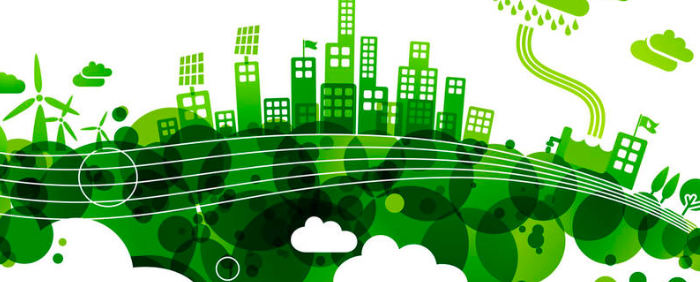
You have just understood everything, and the awakening is difficult? These trees cut with frenzy, these seas tainted without qualms, these species exterminated without restraint, this atmosphere polluted continuously … In short, this Earth is yours exhausts while it is absolutely not what you want: sustainable development is an honest solution to stop – or at least try to slow down – this sad phenomenon.
Like the house and the garden of which you dreamed a long time then finally could offer you, that today you protect and maintain hoping that they remain in the family and that one day, your children will benefit in turn, the planet is also your heritage … and that of 6.5 billion people. A gigantic co-property in short. And who would agree that we should dump rubbish bins on his land, that we throw chemicals that would pollute forever the land of his garden, that we remove the nest of swallows hidden under the roof who ensures the annual return of these fabulous birds or that we cut this beautiful apple tree that has been there for generations? Nobody of course.Yet this is what you experience every day at home … on your planet!
The concept of sustainable development first appeared in the Brundtland report entitled “Our Common Future” published in 1987 by the United Nations. The definition given is very clear: ” sustainable development is development that meets the needs of the present without compromising the ability of future generations to meet theirs “. Thus, sustainable development implies not only respect for the environment, but also the reduction of social inequalities between men, that is to say, solidarity with the poorest populations (that everyone can decently feed themselves, clothe, work, have a roof, etc.) and can not take place without a gradual transformation of the economy and society. A laudable idea that seems almost easy to implement on paper, but the reality is different …
Better manage the consumer society
Because the way to produce and consume excessively has an impact on the environment even if we are not always aware of it. ” The agriculture sedentary, diversion of rivers, mining, the emission of heat and gases toxic in the atmosphere, the commercial exploitation of forests, manipulations genetic, are examples of the human intervention in ecosystems during development activities …“recalls the Brundtland report. In these conditions, alter the air water, soil, or living things is nothing more irresponsible than sawing the branch on which we are sitting!
Obviously, sustainable development is at all levels: worldwide ( law enforcement, institution building) since it can only result from a collective effort, but also local (awareness, education) or even individual. Being generous, responsible, voluntary, respectful of nature and others, or ‘consuming’ in another way is also acting for sustainable development. And ” everything would be better if everyone took into account the consequences of their actions on others ” rightly points out the UN document. However, it must be admitted that the possibilities of implementing effective actions depend very much on the means available to each country. ” Poverty reduces people’s ability to use resources in a balanced way; it intensifies the pressures on the environment “says the UN again …
The end of the ‘law of the strongest’: a utopia?
The consequences of our actions can indeed be dramatic, as they relate to energy ( fossil fuels and minerals are not inexhaustible resources, let us not forget!), Biodiversity (” once extinct, a species never to be renewed again … “we are reminded) or elements as precious for the survival of humanity as water or air. As a result, it is time for each state and individual to become aware of their own responsibilities. The more ‘strong’ they need to feel above the laws on the matter? No.Polluting or degrading the environment knowingly and at the risk of putting the health of the population at risk under the pretext of financial stakes must be severely punished … including France!
This phrase in the Brundtland Report is timely: ” An industrial enterprise can very well afford to pollute the air or water in an unacceptable way simply because the people who suffer from it are too poor to take legal action . A forest can be completely destroyed by cutting down all the trees , simply because the inhabitants have no other solutions or because the companies are more influential than the inhabitants of the forests “. Preventing such abuses requires giving important powers to competent authorities, so that they do not suffer any pressure from the most influential people or states. Sustainable development, a utopia?Certainly not, because mentalities evolve positively. There are reasons to be optimistic today and to think that sustainable development has a bright future ahead of him!